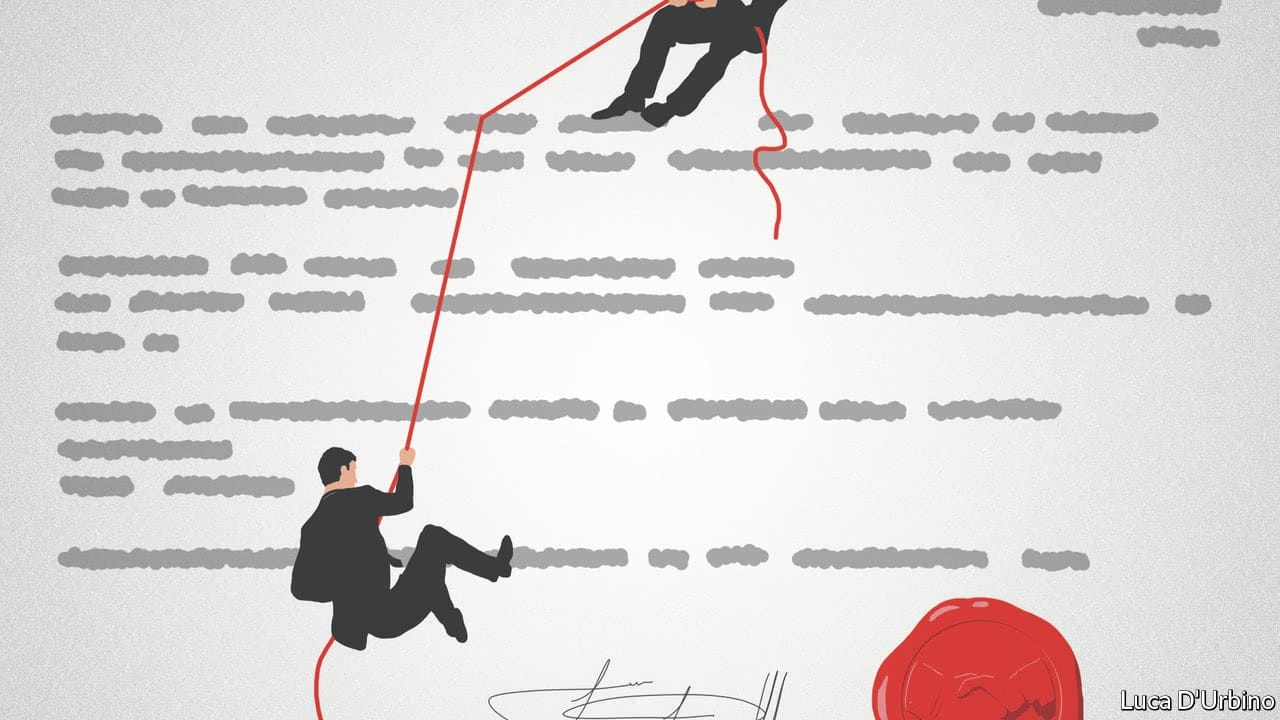Coase’s theory of the firm
If markets are so good at directing resources, why do companies exist? The first in our series on big economic ideas

ONE morning, an economist went to buy a shirt. The one he chose was a marvel of global production. It was made in Malaysia using German machines. The cloth was woven from Indian cotton grown from seeds developed in America. The collar lining came from Brazil; the artificial fibre from Portugal. Millions of shirts of every size and colour are sold every day, writes Paul Seabright, the shirt-buying economist, in his 2004 book, “The Company of Strangers”. No authority is in charge. The firms that make up the many links in the chain that supplied his shirt had merely obeyed market prices.
This article appeared in the Schools brief section of the print edition under the headline “Coase call”
More from Schools brief

LLMs will transform medicine, media and more
But not without a helping (human) hand

How AI models are getting smarter
Deep neural networks are learning diffusion and other tricks

The race is on to control the global supply chain for AI chips
The focus is no longer just on faster chips, but on more chips clustered together
AI firms will soon exhaust most of the internet’s data
Can they create more?
A short history of AI
In the first of six weekly briefs, we ask how AI overcame decades of underdelivering
Finding living planets
Life evolves on planets. And planets with life evolve
